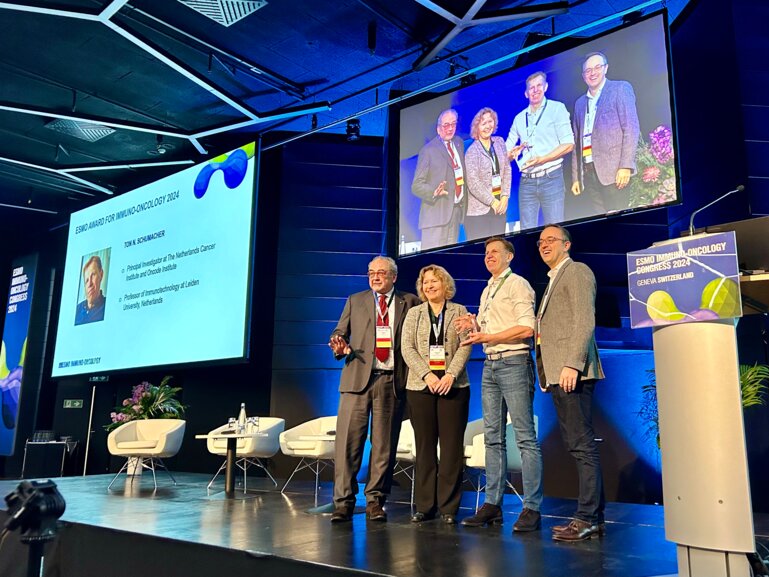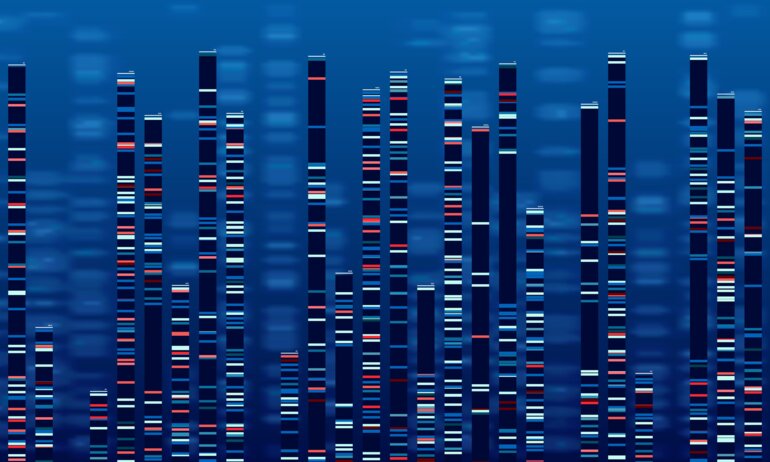
An ESMO roadmap for implementing molecular tumour boards
Newly released recommendations address key areas to facilitate the integration of precision oncology in clinical practice

Newly released recommendations address key areas to facilitate the integration of precision oncology in clinical practice

According to the 2024 ESMO Immuno-Oncology Awardee, Ton Schumacher, tackling the T-cell receptor challenge with vast datasets and cutting-edge high-throughput methods may pave the way for advances in the field

Data from studies presented highlight the importance of integrating and incorporating comprehensive genomic profiling into clinical practice across a broad range of tumour types

New data from the ALINA study confirm lack of influence of EML4-ALK variant on outcome in this patient population

According to Prof. Serena Nik-Zainal, 2024 ESMO Translational Research Awardee it is important to change the mindset of the cancer community to embrace all the information available through genome research

Advances in precision oncology are moving the field towards a biology-based cancer care, and ESMO is supporting the change with a series of tailored resources for medical oncologists

NGS testing is now recommended also for patients with some rare tumours and to detect tumour-agnostic alterations

A more detailed picture of breast cancer establishment may facilitate prevention and detection in women at high risk

In an interview, Prof. Julien Taieb comments on the major advances from colorectal cancer research which are driving the development of molecular-based therapies

Several key issues including standardisation and validation of ctDNA response criteria for predicting clinical outcomes in oncology still need to be addressed
This site uses cookies. Some of these cookies are essential, while others help us improve your experience by providing insights into how the site is being used.
For more detailed information on the cookies we use, please check our Privacy Policy.
Necessary cookies enable core functionality. The website cannot function properly without these cookies, and you can only disable them by changing your browser preferences.